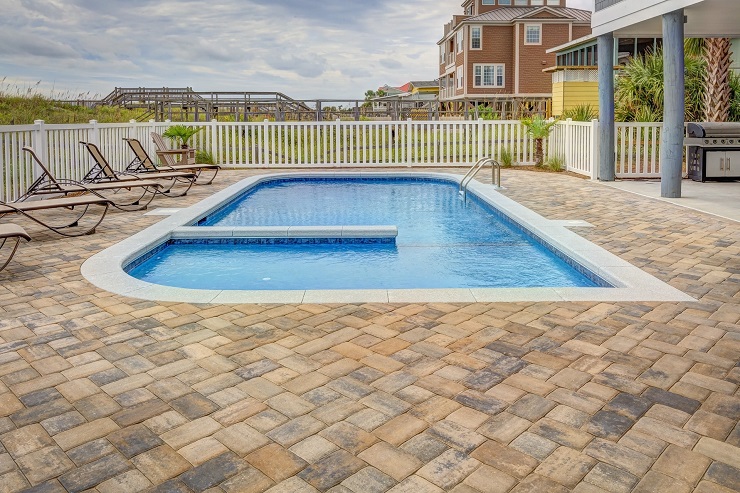What is calcium hardness in your pool water? Should you care? Does your swimming pool contractor check that when he or she pays a service visit? We will explain what calcium hardness is and why you should care. And yes, your pool service contractor in Menifee, CA should be testing that when he tests the water chemistry.
- Calcium can leave ugly stains that look like rust
- Calcium corrodes the pool’s metal finishings
- Calcium can create tiny pinhole leaks in pool equipment
Calcium is not a friend of swimming pool water. Calcium – or calcium carbonate – is a naturally occurring chemical compound. It can be one of the most common sources of swimming pool maintenance issues. There is good news, though! If your swimming pool maintenance professional is on a regular routine and keeps the water chemistry balanced (which the pros at A Clear Choice Pool and Spa do) you may not have to worry about calcium build-up.
What is calcium hardness in your pool?
What causes this build-up of calcium in the water?
If there is an escalating level of calcium in the water, it sometimes means there is another issue with the pool water chemistry. One chemical that is out of balance can cause a ripple effect through all the pool water chemistry.
Pool pH levels – too high or too low – are problematic. This can lead to:
- Algae growth
- Cloudy water
- Calcium build up/deposits
Water temperature also plays a role in calcium build up. The warmer the water, the more calcium becomes an issue.
If you’re DIY your pool service you may want to try and get rid of ALL the calcium in the water. Stop! That will lead to low calcium levels and bring other issues! The pool water, when out of balance, will attempt to regulate itself and it wants calcium. If it doesn’t find calcium in the water, it will pull it from the plaster walls of your pool. If you have a fiberglass pool, it will draw calcium from the metal fittings. Neither of these scenarios are what you want.
How can proper calcium levels be maintained?
- Test the chemistry often
- Keep pH and alkalinity levels balanced
- Keep the water calcium levels between 100 and 400 PPM (parts per million)
If the levels are too low:
- Add water hardness increaser
- Buy a bucket of granular hardness increaser
If the levels are too high you can add a sequestering agent. If you live in an area where there is always too much calcium, make using a sequestering agent part of the pool maintenance routine.
Give us a call if you are having calcium issues, or if you’re not sure if you are – we can perform a water chemistry test and even take this DIY task off your hands!

